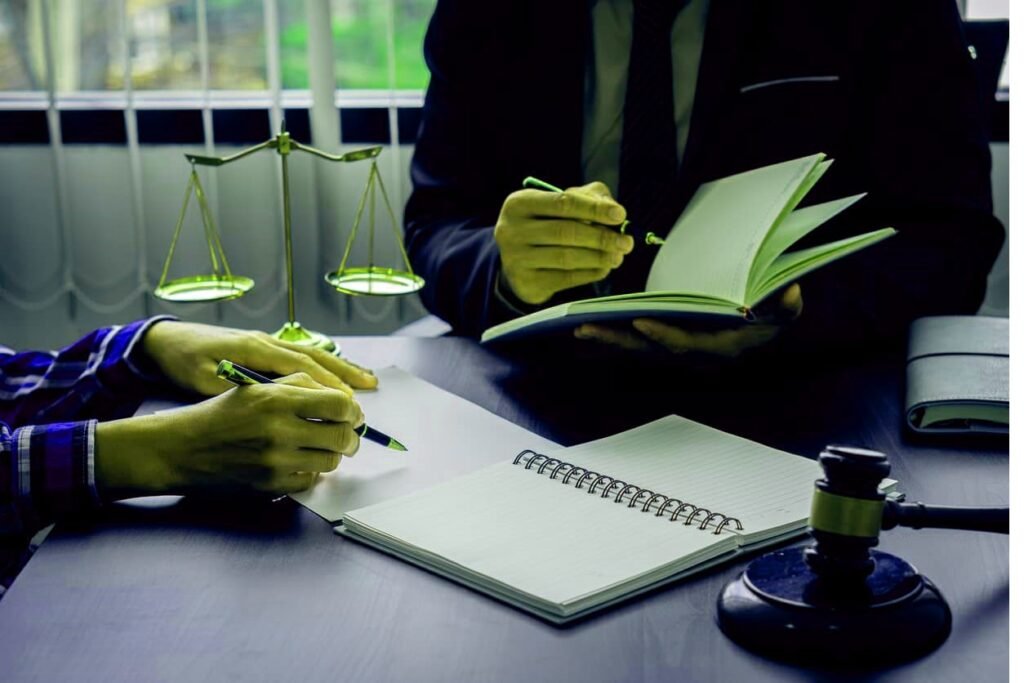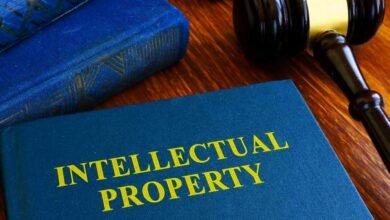Guidelines for Lawyers’ Professional Conduct

The practice of law is difficult for a variety of reasons, and one of these reasons is the requirement that lawyers must abide by certain codes of professional conduct. These rules of professional conduct are designed to safeguard the general public while also preserving the honor of those who practice law. As a consequence of this, lawyers are expected to be well-versed in the relevant codes of ethics and to direct their professional behavior with these principles in mind.
In this article, we will discuss some of the most important rules of professional conduct that are applicable to attorneys on a daily basis. Naturally, these regulations can be different from state to state; therefore, you should ensure that you are familiar with the ethics regulations that apply in your particular jurisdiction.
The Model Rules do not have any legal force or effect. Instead, they are intended to serve as a template for attorney ethics rules across the country, with individual states having the discretion to enact their own rules.
Despite this, the majority of states have adopted the ABA Model Rules in one form or another. As a result, we will investigate the ethical responsibilities of attorneys using the Model Rules as a guide.
What are the ethical duties of a lawyer?
The preamble to the ABA Model Rules, which outlines an attorney’s various responsibilities and obligations, provides a concise summary of the ethical duties that are incumbent upon a lawyer.
A client’s interests are advocated for by a lawyer, who also serves as an officer in the judicial system. They are essential to the administration of justice in their roles as guardians of the law. As a result, lawyers are expected to uphold the highest possible standards of ethical behavior.
These moral obligations consist of the following:
- Executing in a skilled and conscientious manner
- Keeping open lines of communication with customers
- Ensuring that information pertaining to the representation of a client is kept confidential at all times.
Attorneys have the ethical obligation to either steer clear of conflicts of interest with their clients or appropriately address them when they do occur. In addition, they are required to comply with the requirements of the law, utilize legal procedures only for legitimate purposes, and show respect for the legal system.
What is unethical for a lawyer?

Infractions of the general ethical duties that have been outlined above would constitute unethical behavior on the part of a lawyer. It is unethical for an attorney, for instance, to be professionally incompetent, to fail to communicate with a client, or to improperly disclose confidential client information. Other examples of unethical behavior include failing to communicate with a client.
It is also unethical to have conflicts of interest that are not disclosed, as well as to engage in any activity that is illegal or unscrupulous, such as withholding evidence from the courts or providing them with false information.
Because of this, it is extremely important to have a solid understanding of the rules of professional conduct for lawyers, as well as how those rules apply to your particular case and field of practice. Not only does engaging in unethical behavior tarnish the reputation of an attorney, but it also opens the door to the possibility of malpractice lawsuits. Even though there are measures that can be taken in response to malpractice claims, it is preferable to reduce the likelihood that such claims will be filed.
Read More: first-year lawyer Salary Guide for 2023
Rule 1.1 Competence
One of the most fundamental ethical responsibilities that lawyers have is to carry out their work to the best of their abilities. This indicates that those who practice law have the responsibility to perform their duties at a level of competence that meets certain prerequisites. In accordance with Model Rule 1.1, attorneys are obligated to provide their clients with “competent representation,” which can be understood as the demonstration of the required levels of legal expertise, knowledge, thoroughness, and preparation.
The official comments on Rule 1.1 go into great detail about what is expected of attorneys in order for them to be considered competent. One of the most recent and noteworthy additions to the comments discusses the application of technology in the legal industry. More specifically, comment number 8 states the following:
“In order to maintain the necessary knowledge and skill, a lawyer should keep abreast of changes in the law and its practice, including the benefits and risks associated with applicable technology [emphasis added], engage in ongoing study and education, and comply with all requirements for continuing legal education to which the lawyer is subject,”
As a result, legal service providers must acquire the fundamentals of technological competence.
Rule 1.4 Communications
In addition to requiring a certain level of competence, the ethical rules that govern attorneys also require a certain level of communication with their clients. This requirement is addressed in Model Rule 1.4, which deals with attorney-client communication. Since failure to communicate is one of the leading causes of legal malpractice claims, it is essential to maintain open lines of communication with one’s clients.
Responding to client inquiries and keeping clients apprised of developments are two crucial components of Rule 1.4 of the ethics code. To be more specific, attorneys have a responsibility to keep their clients adequately informed about the status of their legal matters. Additionally, attorneys are required to promptly comply with information requests made by clients. For busy legal professionals who frequently find themselves working under time constraints, these responsibilities can be a burden.
Technology can be used to assist with the tasks associated with client communications, particularly in regard to questions from clients and updates on the case status.
A protected communication portal, such as the one provided by, for instance, can be of great assistance when it comes to providing general client updates. Through the use of the portal, clients can gain access to all of the information that is pertinent to their legal matters. This not only gives clients more agency but also reduces the amount of follow-up, phone call intake, and email response time that the company needs to put in. To paraphrase what Nicholas Hite of the Hite Law Group has to say:
“I tell [my clients], ‘you’re going to get an email, and it’s going to give you access to essentially everything that I have for your file,'” the author says. You have access to everything at any time you like because it is all in the same location. You don’t need to wait for me to call you back or wait for me to respond to your email because I won’t be doing either of those things. The fact that my clients have the impression that they can participate and take charge in the management of their cases is extremely empowering for them.
It is also in the best interest of legal practices to become accustomed to the operation of cloud computing while simultaneously familiarizing themselves with the ethical standards that apply to cloud computing. A cloud solution can be extremely beneficial if you are able to locate a provider that is compliant with the ethical responsibilities of your company.
Rule 1.5: Fees
The ethical rules governing attorneys also cover the process of billing for legal services and costs. In accordance with the provisions of Model Rule 1.5, attorneys are prohibited from requesting payment for fees or expenses that are deemed “unreasonable.” The best way to prevent clients from questioning the legitimacy of your charges is to present legal bills that are as transparent and precise as is humanly possible. In the case of billing by the hour, this would entail including specific notes on the bills that describe the work that was done.
What about credit card processing fees?
To the extent that a law firm accepts credit card payments from clients, they are subject to a subset of this ethical consideration. These businesses may be interested in knowing if they can charge their customers for credit card processing costs.
It is recommended that businesses not pass on these surcharges to customers but instead factor them into their prices.
It is against the law in some states to pass these fees on to customers. There may be less prescriptive ethics rules in other states, such as limiting credit card charges to those that correspond to services provided or expenses incurred on behalf of clients. It could be considered unethical to pass processing fees on to customers because they do not fall into any of the categories above. It would be best if you always looked up the specific position on credit card processing fees in your local ethics rules.
Rule 1.6 Confidentiality of information
Any information obtained by an attorney in the course of representing a client must be kept strictly confidential. Model Rule 1.6 states that part of this responsibility is to “make reasonable efforts to prevent the inadvertent or unauthorized disclosure of, or unauthorized access to, information relating to the representation of a client.”
The seriousness of violating this duty is illustrated by a class action lawsuit filed in 2016 against a law firm in Chicago. The lawsuit was filed because of a purported breach of client confidence. The lawsuit did not allege that attorneys at the firm had accidentally disclosed any client information. There was no allegation of actual theft or misuse of client information, as reported by The American Lawyer. Instead, the lawsuit’s sole focus was on how sloppy data security measures exposed sensitive customer information.
Fortunately, these threats can be reduced thanks to the secure communication tools provided by modern legal technology. Other similarly secure legal software tools can guarantee that your firm is using the latest and most reliable security protocols to protect your clients’ data and communications.
Rule 1.15 Safekeeping Property (Trust Accounts)
Lawyers’ ethical responsibilities in regard to client property are addressed in Model Rule 1.15. Lawyers are obligated to hold client funds in trust and keep detailed accounting records. Settlement funds and prepayments of legal fees and costs are two examples of client trust funds.
Trust account ethics regulations may differ from one jurisdiction to the next, but there are some constants.
To begin, we cannot mix business funds with client trust funds under any circumstances. In addition, the firm must keep detailed records of all transactions involving the trust account in order to comply with ethics regulations. Bank statements must be reconciled with the company’s internal records in order to satisfy the trust account reconciliation requirement imposed by the majority of states.
Trust accounting can be difficult because payments for expenses and third-party fees often need to be transferred from the trust account to the operating account. This creates numerous pitfalls for an attorney handling a trust fund. It is a legal trust accounting tool that can help you sleep better at night by taking care of your trust’s finances systematically and accurately.
Read More: Should Lawyers Use Artificial Intelligence for Briefs?
Final thoughts on rules of professional conduct for lawyers
Lawyers should always act in accordance with the standards set forth in the rules of professional conduct. Ethical rules govern areas such as lawyer advertising in addition to those mentioned above. For the benefit of one’s career, the legal profession, and society at large, every lawyer should become well-versed in the ethical rules for their jurisdiction.
Lawyers should also remember that the right technology can help them fulfill their ethical responsibilities. Responsible legal professionals, like those who carry malpractice insurance, should make it a point to become tech-savvy. Think about how you can use technology to help you do the right thing ethically and succeed as a lawyer.












2 Comments